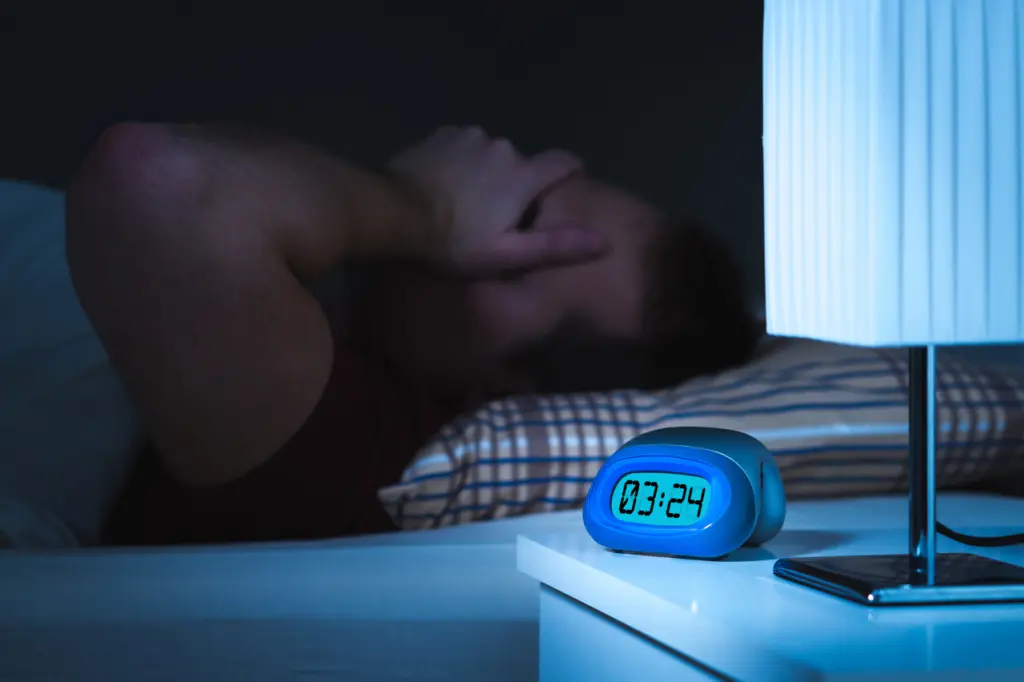Research has shown that 10% of people have chronic insomnia while as many as 35% of people have brief symptoms of insomnia. One way to treat insomnia is through the use of Z drugs like zolpidem for sleep.
Insomnia describes a state where you are not sleeping as you should, including not sleeping well, not getting enough sleep and having trouble falling or staying asleep. Insomnia can be described as short term or chronic and can occur on its own or as a result of other conditions or circumstances.
Prolonged or severe insomnia leads to sleep deprivation, which can increase the risk of other conditions such as depression, anxiety, hypertension, heart attack, stroke, obstructive sleep apnea, type 2 diabetes, obesity and conditions that involve psychosis.
For this reason, treatment of insomnia is important to your overall health and well being.
What are Z Drugs?
Z drugs are a group of non-benzodiazepine medications that are used to treat short term insomnia and, in some cases, to improve pre- and post-operative pain.
They belong to a class of drugs called hypnotics. Compared to benzodiazepines, these medications have a faster onset and are cleared by the body quickly, lessening the risk of daytime sedation.

There are three major classes of Z drugs: imidazopyridine, pyrazolopyrimidine and cyclopyrrolone. The most common Z drugs are zolpidem or Ambien, zaleplon or Sonata, and eszopiclone or Lunesta. These medications can not be purchased over the counter and must be prescribed by a qualified medical professional.
Common Types of Z Drugs
Each of the three common types of Z drugs has slightly different features, so your doctor can determine the right fit for you and your insomnia.
Ambien or Zolpidem
Zolpidem, also known as Ambien, treats insomnia by helping you get to sleep faster and remain asleep throughout the night. Ambien should only be used short term for most people, usually not longer than a week or two.
Ambien has an onset between 15 and 30 minutes, reaching its peak effect in approximately 90 minutes. Zolpidem is not recommended for long term use due to the potential for dependence and tolerance.
Lunesta or Eszopiclone
Eszopiclone or Lunesta, like Ambien, is used to treat insomnia by helping you to fall asleep faster and remain asleep throughout the night. It should not be used for more than 7 to 10 days continuously, unless your doctor recommends otherwise.
Lunesta has an onset around 30 minutes and reaches its maximum blood concentration within one hour. Because it has a risk for dependence, it’s not recommended for long term use.
Sonata or Zaleplon
Zaleplon, also known as Sonata, is used to treat insomnia by promoting relaxation in the brain and slowing activity that allows you to fall asleep. It is typically recommended for short term use, usually for 1-2 weeks.
Sonata has a rapid onset, usually within 30 minutes, and lasts for 2 to 4 hours. The use of Sonata long term is not recommended due to the potential for dependence and tolerance.
There are some conditions that might not be a good fit for Z drugs. Be sure to notify your doctor if you have a history of:
- Depression
- Drug abuse or addiction
- Liver disease
- Respiratory conditions
- Myasthenia gravis
- Sleep apnea
- Suicidal ideation or a previous suicide attempt
You should also notify your doctor if you’re pregnant or breastfeeding. Make sure to tell your doctor about all medications, supplements and over the counter drugs that you take because Z drugs can interact with several of them.
As well, you should let them know if you smoke, drink alcohol or use drugs before taking these medications.
FAQs About Z Drugs for Sleep
No, Z drugs are not safe for long term use due to the potential for dependence or tolerance, regardless of which type you’re taking. However, in practice, some doctors may prescribe it for longer, especially for people with chronic insomnia.
Using these medications for longer than 2 weeks can result in serious withdrawal symptoms when stopped abruptly. Discontinuation of these medications should be done through gradual dose reductions.
Yes, using Z drugs along with therapy can be beneficial for individuals who are experiencing insomnia. Therapy can help uncover any psychological issues that are impacting sleep and work toward making positive lifestyle changes to promote better sleep.
All three medications are used to treat insomnia. Ambien (zolpidem) and Sonata (zaleplon) are usually prescribed as a short term treatment for insomnia, and they have a rapid onset of action and work by helping you to fall asleep and remain asleep.
Lunesta is used as a short term treatment for insomnia, especially for those individuals who have trouble remaining asleep because it stays active in the body for longer than the other two drugs.
Yes, Z drugs are a type of sleep medication so they are considered to be a type of sleeping pill.
How Z Drugs Are Used as Sleep Aids
Z drugs work to help you fall and remain asleep. These medications are not intended for long term use due to the risk of dependence.
It is recommended that when taking Z drugs that you plan to have at least 7 to 8 hours of sleep available and not interact with heavy machinery or drive a vehicle once a dose is taken.
Dosing should be based on individual need, used with caution in the elderly and for individuals with other medical conditions. Your doctor can prescribe a dosage that aligns with your needs and your medical history.
You should never take more than prescribed or combine a Z drug with other central nervous system depressants such as alcohol, opioids, sedatives, hypnotics or tranquilizers. Long term use of Z drugs has been shown to cause dependence and serious withdrawal symptoms when discontinued.
Side Effects of Z Drugs
Like any medication, Z drugs have potential side effects. These can include:
- Sleepiness
- Dizziness
- Difficulty focusing or thinking
- Blurred vision
- Impaired depth perception
- Slowed reaction times and reflexes
- Not feeling pain the way you otherwise would
Long Term Complications Associated with Z Drug Use
There are risks associated with using Z drugs, especially if you’re using them long term or are taking them more often than necessary.
Those risks and complications can include:
- Frequent forgetfulness or loss of memory
- Depression symptoms including fatigue, feelings of hopelessness or suicidal thoughts
- Liver issues or liver failure
- Dependency and potentially life threatening sedative withdrawal symptoms when stopped abruptly
Z Drugs and Therapy: A Combined Approach
Individuals who are experiencing insomnia can benefit from a combination of insomnia medication like Z drugs along with therapy, including cognitive behavioral therapy for insomnia (CBT-I). Z drugs are a good short term strategy to treat insomnia, but to be most effective should be used in conjunction with therapy.

For some individuals, their insomnia may be linked to thoughts or behaviors that impact their sleep, like obsessive worrying. CBT-I can help you replace negative thoughts in addition to teaching you strategies that can help your sleep.
These interventions may include a change in routine, such as avoiding naps, using the bed for sleep or sex only, setting sleep limits, and lifestyle changes such as not drinking too much caffeine late in the day or minimizing alcohol. Other changes may include improving your sleep area, like having no TV in the room and keeping the room dark, cool and quiet.
Additionally, you may learn relaxation techniques that help promote sleep such as meditation, imagery and muscle relaxation.
Risks and Considerations When Taking Z Drugs
While the use of Z drugs can be beneficial for the short term treatment of insomnia, there is a risk of potentially dangerous side effects. Because of this, the FDA has placed a black box warning on Ambien, Lunesta and Sonata.
The black box warning is due to the risk of sleep behaviors including sleepwalking, sleep driving and engaging in other activities while not fully awake. These dangerous activities have been seen with initial doses, are not dose dependent and can happen with or without the concurrent use of alcohol or other central nervous system depressants.
Lower Risk Alternatives for Better Sleep
Individuals should try safer alternatives such as natural sleep aids, relaxation and good sleep practices before using Z drugs. This includes melatonin and magnesium supplements, Valerian root, L-theanine, CBD oil, lavender essential oil and chamomile tea.
Before starting any natural supplements, you should check with your medical provider to ensure that they are safe to use with any medications you are taking or any medical conditions that can be impacted by taking them.
It can also help your sleep if you develop a relaxing bedtime routine that may include a warm bath or shower, reading or listening to calming music. As well, limiting caffeine, alcohol and heavy meals before bed may also be helpful.
Finding the Right Solutions for Your Insomnia
Insomnia is more than just a few nights without restful sleep. For individuals who are struggling with insomnia, the use of Z drugs may be a good short term solution for improving sleep and preventing complications associated with this medical condition.
By combining Z drugs with evidenced based therapy, individuals have a better chance of restoring a healthy sleep schedule and improving overall well being.
If you’re struggling with a dependency on Z drugs like zolpidem or if you have an addiction that’s making it harder for you to sleep, find an addiction treatment center that can help you on Rehab.com.
Featured Facilities Near You
Finding facilities near you…




